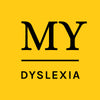Test if you have dyslexia - a quick test (in Finnish)
Use the quick test to test if you have a reading problem. You will receive the results in your email. There are 22 questions. The quick test tells you whether you have a reading difficulty or a learning difficulty.
Is reading foreign words difficult for you? Do you find it difficult to receive and forward phone messages?
The list is based on the British Dyslexia Association's checklist for adults, and during the first month, 14,000 Finns have already taken the test. About 6-10 percent of Finns have difficulties in reading or writing.
Is reading slow?
Is it difficult to remember the content of the text you read?
Is reading foreign words difficult for you?
Do you avoid reading?
Do you have spelling mistakes?
Do you often make careless mistakes?
Has learning foreign languages been difficult for you?
If you're doing something and you're interrupted, do you forget what you were doing?
Is expressing things in writing difficult for you?
Do you find it difficult to receive and forward phone messages?
Do you have a hard time remembering people's names, even when you try to remember them?
Do you find it difficult to count in your head without aids?
Was learning the multiplication table difficult at school?
Do you easily get the phone numbers wrong when you dial them?
Is reading a map or finding your way around a new place difficult for you?
Is it difficult for you to follow the speech in, for example, a large group?
Do you find it difficult to pronounce long words?
Do you often mix up dates and times so that you arrive at the wrong time for appointments?
Do you find it difficult to remember the order of the months fluently?
Do you find it difficult to list the names of the months backwards?
Do you find it difficult to fill out forms?
Do you often mix up right and left?
Quick test results
Hey,
thank you very much for taking the quick test. There were %questions% and you answered %yes% Yes and %no% No.
You answered more than half of the questions, so you may have a reading problem. Read more about reading difficulties.
Please note that the test is not an official reading test, but it can be used to initially determine the possibility of a reading difficulty.
Determining a reading disability
If the test gives reason to suspect a reading or learning difficulty, it is advisable to contact the health care or, for example, the school's special education teacher or psychologist for further examinations. You can also contact interest organizations such as The Finnish Diverse Learners' Association. Reading difficulties can be diagnosed by a special education teacher, speech therapist, psychologist or neuropsychologist based on research. A reading disorder can also be diagnosed by a doctor based on tests.
Background of the test
The list is based on the British Dyslexia Association checklist for adults. The questions have been modified based on the experiences of the Rehabilitation Foundation's Learn to Learn project.
Tips:
• For reading and learning: check out Celia's audio books.
• If you have difficulties with writing, you should familiarize yourself with these aids .
You answered less than half of the questions, so you probably don't have a reading problem. Read more about reading difficulties.
Please note that the test is not an official reading test, but it can be used to initially determine the possibility of a reading difficulty.
Hey,
thank you very much for taking the quick test. There were %questions% and you answered %yes% Yes and %no% No.





